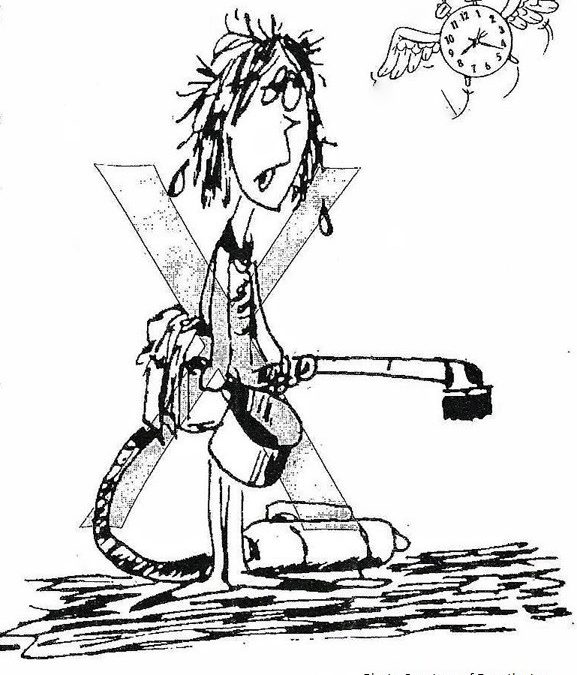
by Angela Hinkle | Feb 11, 2019
Though not a widely publicized day on most calendars, Random Acts of Kindness Day, February 17th, is worth some attention. Random Acts of Kindness Day is a day when everybody gets the chance to do something nice for someone else.
A Little History
There’s a bit of debate over where and when it started. But it is generally believed to have started in Denver, Colorado in 1995. Then it spread to New Zealand in 2004. Since it apparently worked so well, it has since spread as an international holiday. So, now, we globally have a day dedicated to doing nice things for others.
Why Set Aside a Special Day?
Did someone recently cut you off in traffic? Are you tired of mean social media rants? Do too many of the people you encounter lately just seem rude? Does the only news you get seem to all be bad news? Then having one day to both offer and receive random acts of kindness just may give you the stop and reset buttons you need. You can plan out kind acts or just wing them spontaneously.

Giving and receiving brightens your day and makes you smile. Photo source: Angela Hinkle
Even the littlest kind thing you do for someone else can make a big difference in their day and yours. There’s the story I heard recently of a driver who brought a hamburger to a man living under a bridge at the beach. The homeless man said it was a perfect “surf and turf” lunch. The driver said that was one of the best days he ever had.
What Does the Research Say?
The effects of doing kind things for others is hard to scientifically pinpoint. However, multiple small case studies have shown that those practicing altruism live longer, healthier lives.* Kind deeds have been shown to reduce our stress levels and the negative physiological effects of stress on our bodies. “Happy” hormone levels increase as we care for others. There also is often a giddiness (not a scientific term) we feel when we do that nice unexpected thing for someone.
How to Celebrate
Doing nice for others can produce a ripple effect. You do something nice for someone. Then they do something nice for someone else. And so on, and so on, and so on. Your act of kindness does matter. Here are a few acts of kindness you may want to try:
- Pay for the person behind you at the drive thru.
- Give someone a compliment.
- Donate used business clothes to people who are going on job interviews.
- Let someone have that prime spot in the busy parking lot.
- Share your lunch.
- Clean up someone else’s mess.
- Leave a really big tip for your wait staff person.
- Donate blood.
Try a random act of kindness this February 17th. I think it will be worth it. And who knows, you may get so good at it, you start providing those random acts of kindness every day.
*Resource: The Science of Good Deeds: The ‘helper high’ could help you live a longer, healthier life. WebMD https://www.webmd.com/balance/features/science-good-deeds#1

by Laurie Osgood | Feb 6, 2019

Regular vehicle maintenance can help you avoid expensive repairs. Photo credit: UF/IFAS Northwest District
A car is one of the biggest investments we will make. With proper car maintenance, you can increase safety, improve performance, and save money in the long run. According to AAA, big improvements in powertrain technology, lubricant, and rust prevention have led to improvements in automobile reliability, longevity, and durability. With proper care, almost any car can make it well past the 100,000-mile mark.
TIPS FOR PROLONGING THE LIFE OF YOUR CAR
• Do some research and purchase a safe, reliable vehicle
• Stick to the recommended car maintenance schedule
• Buy high quality parts: engine oil, battery, tires, etc.
• Keep your car clean, inside and out
• Know what to look for if your car is beginning to show signs of trouble
WARNING SIGNS THAT YOUR CAR MAY BE HEADED FOR TROUBLE
You know your car, and, therefore, you are the best judge of when it’s acting differently. There are signs your car may exhibit that will warn you of a potential problem. It could be a light, a sound, or an unusual smell. Consumer Reports recommends at the first sign of trouble, you should take your car to a reliable mechanic.
WARNING LIGHTS
Lights that appear on your dashboard are connected to sensors that monitor everything your car does. If your car senses that something isn’t quite right, the computer will use these lights to tell you what it is. If any of these lights appear, your mechanic will be able to hook up your vehicle to a diagnostic scan tool to identify the trouble and find out exactly what’s prompting the light to turn on.
Pay attention to these warning lights, as they could indicate a problem with your vehicle:
• Check Engine
• Check Oil/Oil Level Low
• Oil Pressure Low
UNUSUAL SOUNDS
You know your car and the sounds it normally makes, but new or different sounds can be a sign of trouble. These sounds can be a clue to what’s going on under the hood. GEICO Insurance offers a list of these sounds and their possible causes.
Sounds and Possible Causes
- A sound like a coin rattling inside a tin can: Could be a loose lug nut inside the hub cap.
- Brakes squealing or grinding: Your brake pads or shoes might need to be replaced. Pads may be worn, and the sound is metal on metal.
- A snapping, popping, or clicking sound when you turn a corner: One or both of the constant velocity (CV) joints on your front axle could need to be replaced.
- A rhythmic squeak that speeds up as you accelerate: This could indicate a problem with the universal joints (U-joints) in the driveshaft.
- A howling, whining, or even “singing” sound: Bearings, which are small metal balls that help parts rotate smoothly, may not be properly working.
- A rhythmic clunking, tapping, or banging from under the hood: This could indicate a problem with valves, pistons, or connecting rods. Rough, bumpy motions could be caused by faulty spark plugs, clogged fuel lines, or a bad fuel filter.
- A squealing sound from under the hood at start-up or when accelerating: This sound could be caused by worn or loose accessory belts for the power steering pump, air conditioner compressor, alternator, or the serpentine belt.
FOUL SMELLS
Toxic gases such as carbon monoxide are contained in a car’s exhaust system. If you smell a foul or strong smell while inside your car, this may be a sign of a serious problem. You should have it checked by a mechanic as soon as possible. If oil or coolant is leaking, this may mean hazardous exhaust gases are entering the interior of your car.
The smell of rubber burning could be a signal that your car’s drive belts or accessory belts underneath the hood are damaged, worn, or loose. These belts will need to be replaced as soon as possible to prevent more problems.
SMOKE
Smoke can come from the front or back of your car. Smoke coming from beneath the car’s hood most likely means your engine is overheating, and you should bring it to a mechanic right away. The color of the smoke coming out of your exhaust pipe can give you a clue about what may be going on inside your engine.
Blue Smoke: This could mean oil is escaping from somewhere within the engine and is being burned along with the gasoline. If you see blue smoke, your mechanic should look for damaged or worn seals in the engine.
White Smoke: May mean antifreeze or water condensation may have mixed in with the gasoline. You should have it checked out as soon as possible.
Mechanics agree that preventive maintenance, including regular oil changes and belt replacement, can help to extend the life of your car. Car maintenance can be an inconvenience that requires time, planning, and effort. But, in the long run, the benefits of driving a safe car outweigh the cost and aggravation.
For more information on how to save money by properly maintaining your car, contact your local UF/IFAS Extension Office.
Sources:
AAA: https://magazine.northeast.aaa.com/daily/life/cars-trucks/benefits-maintaining-vehicle/
Consumer Reports: https://www.consumerreports.org/car-repair-maintenance/make-your-car-last-200-000-miles/
GEICO: https://www.geico.com/more/driving/auto/auto-care/car-noises/?utm_source=geico&utm_medium=email&utm_content=newsletter&utm_campaign=feb2018

by Laurie Osgood | Jan 17, 2019
January 24th is Global Belly Laugh Day!

Make health and wellness a part of your calendar and daily routine.
Photo source: UF/IFAS Northwest District
Each year, we celebrate many holidays, but there are also many observances and commemorations scheduled throughout the calendar year. Some are odd, like National Science Fiction Day, Word Nerd Day, and even National Dinosaur Day. Others serve as a good opportunity to raise awareness about important health topics and remind us to take control of our health.
Celebrating the new year means leaving the past behind, making positive changes, and the continuation of success and happiness. National observances such as Breast Cancer Awareness Month, National Family Health History Day, and World AIDS Day help us come together to spread awareness and show support for each other.
Organizations such as the American Heart Association, American Cancer Society, and American Lung Association have created nationwide awareness month campaigns to draw attention to some of the leading causes of death in America. Other observances, such as Take a Loved One to the Doctor Month from the Florida Department of Health, encourage people to take charge of their own health and to urge their loved ones to do the same.
So, as you are looking forward to the new year, make health and wellness a part of your calendar and daily routine.
UF/IFAS Extension wishes you and your family a year fully loaded with happiness, prosperity, and health.
To learn more about health observances and how to encourage your loved ones to take control of their health, contact Laurie Osgood, Family and Consumer Sciences Agent at the UF/IFAS Extension Office in Gadsden County, (850) 875-7255, or osgoodlb@ufl.edu

by Melanie Taylor | Dec 7, 2018
As the holiday season quickly approaches, many people are filled with extra holiday cheer and enthusiasm. Some are jolly, but still overwhelmed with all of the activities, decorating, and shopping that needs to be completed. Then, there are those that find the holiday season as a reminder of things such as, the death of a loved one, family feuds, divorce, and the list goes on. If you are feeling this way here are a few tips to make getting through the season a little bit easier.
1. Feel your emotions – Many people want to suppress their sadness or anxiety, but this only makes it worse. We are all allowed to grieve, cry and feel mad at times. If you feel this way, let yourself feel your feelings. You will feel better once you have accepted and worked through the emotions. You also do not have to force yourself to feel happy just because it is the holiday season.
2. Reach out to others – Instead of secluding yourself spend time with others, whether it is at church, a community group or with family and friends. Spending time with others and socializing is good for the spirit. In addition, there are tons of volunteer opportunities during the holidays. Try something new and volunteer your time to a worthy cause. You will feel great about helping others and contributing to the cause. Research such as this one conducted by UnitedHealth Group commissioned a national survey of 3,351 adults and found that the majority of participants reported feeling mentally and physically healthier after a volunteer experience. The research showed:
- 96% reported that volunteering enriched their sense of purpose in life
- 94% of people who volunteered in the last twelve months said that volunteering improved their mood
- 80% of them feel like they have control over their health
- 78% of them said that volunteering lowered their stress levels
- 76% of people who volunteered in the last twelve months said that volunteering has made them feel healthier
- About a quarter of them reported that their volunteer work has helped them manage a chronic illness by keeping them active and taking their minds off of their own problems
- Volunteering also improved their mood and self-esteem
3. Be realistic – Realize that times and traditions change as families grow and age. Do not focus on everything having to be the same every year. Be willing to accept changes, such as adult children may not be able to attend the family gathering, so utilize technology and talk through video conferencing, share pictures on email and/or Facebook. Find a way to make it work.
4. Set aside differences for everyone’s sake. Aim to accept family and friends the way they are, even if they do not meet your expectations. Leave grievances at the door for the day and enjoy your family and friends. Share those grievances and talk at a more appropriate and private time. Also, remember they could be feeling the stress of the holiday too. So, be patient if someone is grouchy or sad as you celebrate. You may both be feeling the same way.
5. Learn to say no – Be realistic in the number of activities you and your family can participate. Do not feel guilty because you cannot attend every party and event you are invited too. Graciously decline an invite and share that your schedule is booked, but thank them for thinking of you. A host does not expect that everyone will attend their parties.
6. Take a breather as needed – If you start to feel overwhelmed with anxiety, anger or sadness take a few minutes to be alone. Take 15 minutes to spend in the quiet to reduce the stress and clear your mind. For example: listen to soothing music, do a few mindful breathing exercises to slow yourself down or read a book to temporarily escape the stress.
7.Seek professional help as needed – there are times when the emotions are just too overwhelming to sort through on our own. If you continue to feel sad, anxious, angry, etc. there is absolutely no shame in seeking the help of a doctor or mental health professional. It will only help you work through your feelings with a non-bias person. Helping yourself feel better will improve your quality of life and those around you.
Do not let the idea of the holidays turn you into a modern day Ebenezer Scrooge. Learn to take care of yourself first. Learn your limitations and accept them. Do not let others’ expectations overwhelm you. Just remember when you start feeling extreme levels of emotions and/or stress take a few deep breathes and remind yourself to relax and feel the moment. Be mindful of your surroundings and remind yourself of your many blessings, even when going through difficult times. Make it your personal goal to feel your feelings and enjoy what you can about the holiday season, whether it is the twinkling lights, time with friends and family, the food or any of the many special holiday traditions.

Aim to find JOY during this holiday season.
Sources:
Stress, depression and the holidays: Tips for coping. www.mayoclinic.org,
Signs and Symptoms of Depression http://edis.ifas.ufl.edu/pdffiles/FY/FY10000.pdf
Depression and Older Adults http://edis.ifas.ufl.edu/pdffiles/FY/FY95200.pdf

by Dorothy C. Lee | Dec 3, 2018

Holiday Stress
Photo source: Dorothy Lee
Tis the Season Merry and Bright:
From Thanksgiving to New Year’s Eve there are greater incidences of stress and tension related headaches and migraines. Family stresses, long shopping lines, and unrealistic expectations are enough to trigger tension headaches even in people who are not headache prone. To avoid these aches and pains a strategic plan may be necessary.
Planning is crucial not only at the holidays but throughout the year. Having a plan and being organized makes everything easier and more manageable. The key is to start early and don’t wait until December. This is where Christmas in July becomes useful thinking.
The following are some tips to help avoid stress during the holiday season. Make a schedule that includes all tasks you have to complete, how long you think each task will take, and when each task needs to be completed. This is why Santa makes a list and checks it twice.
- Start shopping early to reduce time wasted in long lines with early-bird hour sales
- To avoid long period of times wrapping, shop in stores where gift wrap is free
- Shop on-line while drinking your coffee in your pajamas
- Track your purchases in a notebook or in note section of your cell phone
- Prioritize your social events and don’t spread yourself too thin
- Use your computer for online postal mailing to avoid lines at the post office
- Instead of mailing gifts, order gifts on-line, and have gifts directly sent to gift recipient
- Practice relaxation and stretching to reduce stress
- Establish a spending limit and stick to it
Be realistic about how much you can do as nobody likes a cranky Santa. By following these tips, you will be as jolly as old Saint Nick.
Enjoy the holiday season with family and friends as it is the greatest gift you can give yourself. And remember, laugher is the best medicine for stress!
Happy Holidays!

by Laurie Osgood | Dec 1, 2018
It’s the Most Wonderful Time of the Year… for Criminals, Thieves and Scammers

Photo source: UF/IFAS Northwest District
This holiday season scammers and identity thieves are hoping to take advantage of shoppers who may be too preoccupied with travel, gift-buying, and festivities to notice. Therefore, during the holidays, it is even more important to remain vigilant while shopping in stores or online.
More people are turning to online shopping for their holiday gifts. The National Retail Federation forecasts consumers to spend about $721 billion this holiday season. However, this increase in online spending comes with a greater risk for thieves to steal your money or your identity.
Here are some common holiday scams and how to protect yourself from becoming a victim:
Deals That Are Too Good to Be True –while shopping online keep the old adage in mind, “If it sounds too good to be true, it probably is”. During the holidays, shoppers are looking for huge deals, and scammers know it. These thieves often set up websites that appear to be legitimate, just to steal your personal information and/or to download a virus onto your computer.
It is important to make sure any site in which you shop contains an HTTPS security designation. Another simple way to know if the website is authentic is to look for the padlock symbol that appears in the address bar of the retailer. Here is an example of an Amazon online address bar.

Holiday Phishing Scams – Around the holidays, beware of emails pretending to be sent from familiar companies like FedEx or UPS. These emails claim to provide links for package tracking information. These links, once clicked on, will either steal your personal information or download a virus onto your computer. Remember, if you receive an email from someone you don’t know or weren’t expecting an email from, you should never click on links. Also, make sure you are using current antivirus software on your computer.
Identity Theft and ATM Skimmers –
In Store Shopping:
-
- Being vigilant is key to protecting yourself during the holiday season. Thieves target shoppers who are either struggling with packages and bags or those who are unaware of their surroundings. Thieves see this as an opportunity to steal your wallet or credit card numbers.
- When using an ATM or other key pads, make sure to check for skimming devices that thieves install on ATMs and other card readers. These skimmers are placed over the existing key pad in order to access your account. It is also advised to cover the keypad when entering your pin number while purchasing items or getting money from an ATM
- After each purchase, take time to put your credit card back into your wallet. Also, it may be worthwhile to purchase an RFID-blocking wallet. These wallets are designed to shield your credit card information from RFID readers and skimmers..
Online Shopping:
- When shopping online, experts advise consumers to use credit cards instead of debit cards. In case of fraud, both payments types can be disputed, however debit card payments are automatically deducted from your bank account. Therefore, it may take longer to get your money back.
Gift Cards– Gift cards are a great idea for people on our shopping list. However, a record number of retail stores are closing their doors, so you should consider the retailer’s financial situation before buying a gift card. If the retailer closes or declares bankruptcy, the recipient may not be able to use the gift card.
Package Delivery Theft- Having packages delivered to our homes makes us a target for thieves who case neighborhoods and even follow delivery trucks looking for packages sitting on porches. There are ways to prevent this from happening to you. You can have your packages delivered to their office, a local pick-up area, like a UPS Store or try to schedule delivery times when someone will be home, if possible. Online shoppers can also set up tracking notifications, to know when an item is delivered.
Charitable Giving Tips – Give to charities wisely. At this time of year, we all want to give to charities that pull on our heart strings. But beware of giving money to charities that are fake or irresponsible. Do your research to make sure to support the many legitimate and deserving charities that can use our help during the holidays.
The 2018 Consumer Protection Guide – This guide provides more information about protecting yourself as a consumer, including online identity theft, charity scams, item recalls and more.
The holiday season brings out the best and worst in people. Therefore, you should be vigilant because the holidays are a lucrative time of year for thieves and scammers who are trying their hardest to get into your bank account.
For more tips on how to keep your identity safe and avoid holiday scams, contact Laurie Osgood, UF/IFAS Extension, Gadsden County at Osgoodlb@ufl.edu or call (850) 875-7255.












